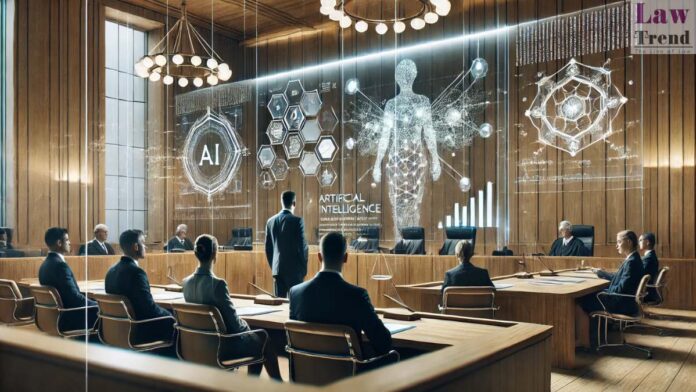In a compelling address at the third convocation of Maharashtra National Law University in Aurangabad, Supreme Court Justice Sanjiv Khanna emphasized the vast opportunities awaiting new lawyers, urging them to engage with Artificial Intelligence, data analysis, and proportionality to fully capitalize on these prospects.
Justice Khanna highlighted the critical need for technological adeptness in the legal field, citing the staggering 5.5 crore cases currently pending across various courts in India, including 83,000 at the Supreme Court alone. “There are 1700 law colleges and about 1 lakh advocates get enrolled every year. With roughly 15 lakh advocates currently enrolled by the Bar Council, the opportunities for legal professionals are immense, not only in litigation but also in serving as judges and tribunal members,” he explained.
During his speech, Justice Khanna pointed out the significance of interdisciplinary study in understanding and applying law in the context of emerging technological fields. “Emerging areas like technology and artificial intelligence, data creation and data analysis, proportionality are crucial for legislative and executive policy as well as judicial determination,” he stated, emphasizing that the law must not be seen in isolation.
The Supreme Court judge also remarked on the ethical foundations of the legal profession, which he described not as a business, but as a pursuit demanding integrity, perseverance, and a deep sense of responsibility. He underscored the importance of maintaining ethics, honor, and dignity in legal practice.
Justice Khanna further encouraged young lawyers to participate in mediation and legal aid, pointing out that nearly 80% of India’s population is eligible for legal aid. “Young advocates can be a part and parcel of legal aid. There is a national legal aid helpline number, and advocates are being engaged to answer phone calls,” he added.
Highlighting the significant number of arrests in India—1.4 crore annually, with 62% under provisions of the Code of Criminal Procedure (CrPC)—Justice Khanna identified this as a critical area for legal intervention.
The convocation ceremony was also attended by Supreme Court Justice Abhay Oka, who serves as the chancellor of the university, Justice UB Bhuyan, and Vice Chancellor A Lakshmikanth. During the event, students were awarded LLB and LLM degrees, marking their formal entry into the legal profession armed with Justice Khanna’s insights and encouragements.




